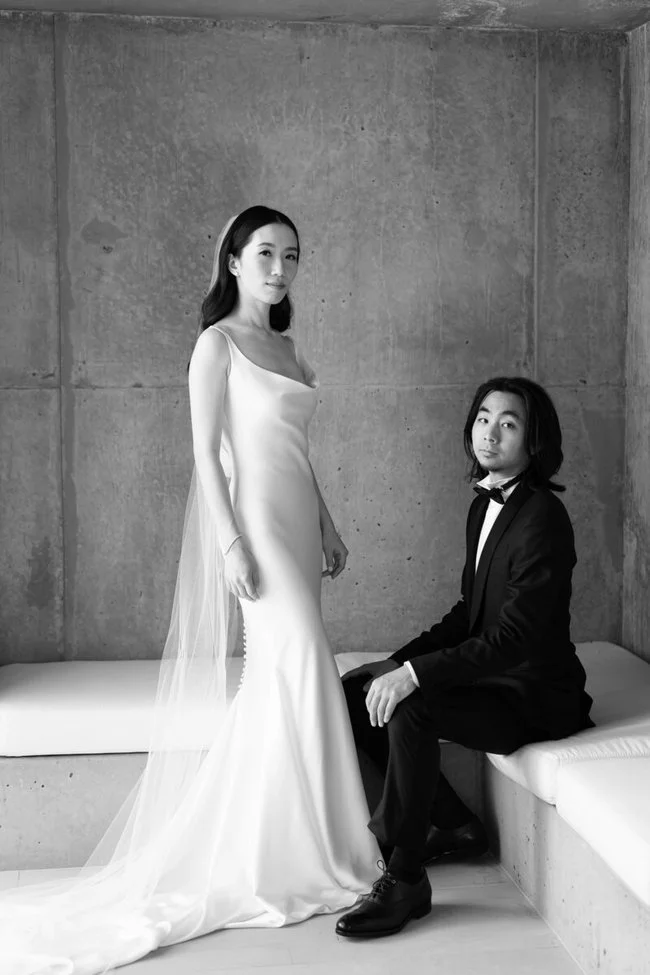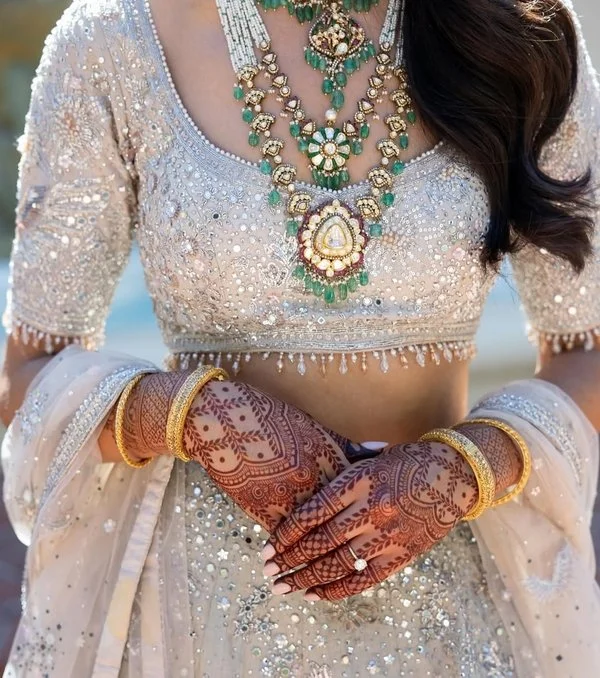Even experienced wedding pros get this wrong sometimes.
Photo by Cameron Clark
Wedding Pro Q+A
This question is from a destination wedding planner based in the United States:
What are your thoughts on planners who charge 10% to wedding vendors for referrals? (This seems to be very common in Europe.) Is it fair/unfair/BS/marketing/a tax writeoff?
I was recently asked to “charge” a referral fee to vendors and it didn’t sit well with me.
Answer from Liene:
Planners and venues charging commissions or taking kickbacks from other wedding professionals has been a topic of heated debate in the wedding industry for decades. It is a practice that has fallen in and out of favor over the years but never truly gone away.
In addition, commissions and kickbacks aren’t limited to 10%. I know some wedding planners, luxury travel advisors, and a few venues who charge vendors 40%.
Commissions happen in the wedding industry in every country — whether legal or not. I have recently heard several wedding pros claim that this practice doesn’t really happen anymore in the luxury wedding industry in the US and all I can say to that is: you sweet Summer child.
My answer is unlikely to settle this debate once and for all but it will shed some clarity on the nuances of the topic and common misunderstandings when it comes to commissions and kickbacks.
Are a commission and kickback the same thing?
First things first, let’s define these terms in the context of the wedding, event, and hospitality industries:
1) COMMISSION: a payment from one vendor to another vendor in the form of money, goods, or services in exchange for a qualified lead and/or booked client.
Commissions are disclosed up front to the client, typically in vendor contracts.
Other names for commissions include:
Referral Fee or Referral Reward
Finder’s Fee
Introduction Fee
Connection Fee
Procurement Fee
Sourcing Fee
Affiliate Fee
Lead Generation Fee
Vendor Partnership Fee
Booking Incentive
Success Fee
Cut
2) KICKBACK: an undisclosed payment from one vendor to another vendor in the form of money, goods, or services in exchange for preferential treatment or referrals.
The keyword here is undisclosed. If the client does not know about the vendor-to-vendor payment, it’s a kickback.
Other names for kickbacks include:
Undisclosed Commission
Secret Incentive
Quid Pro Quo Payment
Bribe
Payoff
Ghost Commission
Hidden Fee Arrangement
Courtesy Fee
Payola
Side Payment
The difference between commissions and kickbacks comes down to consumer awareness, consent, and autonomy:
If the client is aware that the commission is factored into the final cost and consents to it ahead of time, you’re usually legally okay to accept (or pay out) that commission.
If the vendor-to-vendor payment is not disclosed to the client and they were unable to factor that into their purchasing decisions, then it is considered a kickback. Same with an undisclosed markup.
Are wedding industry kickbacks illegal?
The short answer, of course, is the favorite go-to of business consultants and attorneys everywhere: it depends.
Depending on where you live or work, accepting or paying kickbacks as a wedding, event, or hospitality professional may or may not be illegal.
A few examples:
In the US, kickbacks are illegal nationwide in the healthcare, government, real estate, and financial services sectors but are sometimes a nebulous grey area when it comes to other industries.
In some states, including Texas and California, undisclosed markups and kickbacks are illegal for every industry — including weddings and events. Also in Texas, the amount of a commission or markup has to be explicitly stated in the contract. Vague language such as, “A reasonable commission will be assessed” is not allowed.In Italy, these types of undisclosed payments between two or more businesses are considered “private commercial bribery” and are illegal under their domestic anti-bribery laws.
In Australia, the laws on kickbacks in the private commercial sector aren’t regulated at the Commonwealth level but do vary by state or territory. For example, they are illegal in NSW and the consequences there include fines, restitution, and/or imprisonment of up to seven years.
In the UK, paying or accepting kickbacks is illegal under the Bribery Act of 2010. This law applies to both the public and private sectors and also applies to companies based outside of the UK doing business with any company within the UK.
In Ireland, kickbacks between private companies are illegal, including small “facilitation payments” to speed things along. This law applies to Irish citizens and companies no matter where the work is taking place. For example, a planner based in Ireland doing a destination wedding in Portugal cannot charge vendors a kickback.
In France, kickbacks between private companies are considered “domestic bribery” and are illegal. Consequences for accepting or paying kickbacks can include fines of up to €500,000 for individual employees and up to €2.5 million for companies, as well as the employee or business owner being banned from running or owning a company for up to 15 years or, in some cases, permanently.
It would be delusional to think that kickbacks don’t happen between wedding pros in certain places where they are illegal. They happen every day — either due to a wedding pro’s genuine ignorance of the law or their intentional disregard of it.
As a professional business consultant, I legally cannot advise you to do something that would break the law. Nor do I want to. I can acknowledge the truth that kickbacks being illegal in certain places yet still expected might complicate your relationships with some vendors, particularly those who have no problem running their businesses unscrupulously.
As always, run your decisions by your own lawyers. For this topic, you’ll want to talk to an attorney who specializes in commercial and anti-trust law.
Isn’t it mostly inexperienced or flat-fee planners who charge kickbacks?
No, it’s not and I really hate this sales tactic talking point, which is typically used by percentage based planners to justify their pricing model. If that’s you, please get a new sales pitch.
Plenty of flat-fee planners do not take kickbacks.
Plenty of percentage-model planners do.
Plenty of inexperienced planners do not take kickbacks.
Plenty of experienced planners do.
Plenty of European planners do not take kickbacks.
Plenty of American planners do.
There are very experienced American planners who charge their clients 30% of the wedding budget who also take undisclosed 30% kickbacks from their vendors. Some of these same planners swear up and down on podcasts and conference stages that they never, ever take kickbacks. When a potential client asks them if they take kickbacks, they straight up lie and say no.
There are also very experienced planners who charge their clients 30% of the wedding budget who do not take kickbacks.
Greed and a lackluster moral compass aren’t limited to one pricing model, the amount charged, number of years in the game, or geographic region.
Is it ever fair to charge a wedding pro a commission?
A Splendid Note: Since we’ve established that a kickback is an undisclosed commission, when I refer to commissions from here on out, it’s going to be with the assumption that you’ve disclosed it to the client and it is in legal bounds.
Here’s an easy question for determining whether or not a commission is fair: Does it artificially inflate the price without adding value?
If the answer is yes, it’s generally unfair both to the client and the vendor paying it. You’re just asking them to tack an extra 10-30% on to the price for no real reason: that money is not providing additional labor, goods, or services, it’s not a luxury brand positioning premium (as that was already calculated in the vendor’s original price), it’s not a planner-sourced referral because the client found the vendor through the photographer, not you.
If the commission doesn’t represent real value, you’re just asking for extra cash and earning yourself a reputation as a greedy planner.
When the Planner Brings the Sale
If the 10-30% is a referral fee or essentially a sales commission for bringing that vendor the client, then there is an argument to be made that instead of spending that money on Google or Meta ads or another marketing acquisition method, they are paying that customer acquisition cost (CAC) to you for doing the work of reaching, qualifying, and bringing in that client.
You, as the planner, are essentially acting as that vendor’s sales rep and the commission is the reward for your work on their behalf. After all, it is likely your initial marketing spend that brought that client to you. It is not the job of your marketing budget to underwrite the customer acquisition costs of your entire vendor network, so why should you be the only one paying to acquire clients? If the client then signs with a vendor they had never heard of because you referred them, the commission is essentially a way to share that acquisition cost (a form of co-marketing). This can definitely be a fair deal to the vendor paying the commission.
Another example of when paying the commission is worth it: as a keynote speaker, I sometimes work with speakers bureaus. Speakers bureaus are similar to Hollywood agents and literary agents in that they don’t charge me to work with them, but do take a commission of any speaking engagements they book for me.
I am more than happy to pay them the commission as it means I didn’t have to deal with the back and forth of negotiations — they handled it for me. This is disclosed in my contracts and I feel it is completely fair for me to compensate them for that work, especially since the organizations coming through the bureaus usually have never heard of me. It wasn’t my marketing that attracted the client in the first place, it was the speaker bureau’s.
Now, if an organization reaches out to me directly and I handle negotiations, I do not pay the speakers bureau a commission on that speaking engagement. I did the sales and marketing to land that client, not them.
Hotels work similarly — they pay the commission as part of their CAC to whoever brings in that sale, whether it’s a travel advisor, online booking platform like Expedia, etc. This is also why you can often get a better rate by booking directly through the hotel itself.
In my opinion, it’s not fair to charge a vendor a commission when you did not refer them or do anything to bring them that client.
When is a commission pay to play?
A commission becomes pay to play when you only work with people who will pay it and refuse to refer vendors who don’t.
Your client pricing should be set so that you can refer the vendor that is the best fit for the client, whether that vendor agrees to pay you a commission or not.
How can I make enough money if I don’t charge commission?
Commissions are like gratuities in that if your business depends on them, you have a broken pricing strategy.
Your pricing should bring in enough revenue on its own without relying on people to pay an additional commission or gratuity.
If you need to charge a 15% commission to vendors on top of the planning or venue fees you already charge a client in order to earn the actual amount of money you need, then raise your prices.
If you cannot pay your employees enough without them being tipped 20% by a client, raise your prices. A gratuity should always be a nice-to-receive gift, never something you depend on to meet payroll or keep the lights on. (Restaurants are a separate conversation.)
Yes, that may make you more expensive at first glance. If it does, you will have to adjust your sales process and your marketing to build more trust ahead of time. Yes, it is hard work. Welcome to entrepreneurship.
What’s the difference between a planner charging a percentage fee and charging a commission?
A lot of the confusion around commissions in the industry is due to people conflating a project percentage pricing model with a percentage commission. They are NOT the same thing and the terms should never be used interchangeably.
A project percentage fee is a pricing model that determines how a planner, designer, or other wedding pro charges a client for their wedding or events. The payment is made by a client to a vendor.
A commission fee is paid by a vendor to a vendor.
A planner using an escrow pass-through model to pay a wedding pro their normal fee on behalf of the client is NOT a commission. It is the money the client owes the end vendor that the planner is managing and distributing for them.
Are commissions a tax writeoff?
Here’s everyone’s favorite answer again: it depends.
RECEIVING A COMMISSION
In the US, a person receiving a commission payment is required to claim it as income (it falls under “supplemental wages”) and pays taxes on it.
PAYING A COMMISSION
In the US, commissions can sometimes be a tax deduction for the company paying them.
If you’re paying an employee, independent contractor, or other third-party a commission as a payment for driving sales and revenue, you can generally write it off as business expense.
The IRS requires you keep proper documentation and invoices for these payments.
Yes, that means a planner or venue needs to officially invoice you for the commission fee in order for you to pay them. Not claiming it on their books or taxes turns that legal commission into an illegal kickback.
As always there are exceptions to this and the IRS can decide the commission amount is too high to be considered fair, so talk to your tax attorney or accountant.
Should I charge a commission as a wedding planner?
Whether or not you charge a commission is ultimately up to you.
Again, if you’re charging a commission only because you need that extra money from the vendor and won’t make enough from the client without it, then change your business’s pricing strategy.
If charging a commission costs you your reputation, it’s not worth it.
If charging a commission costs you your peace of mind or gives you the ick, I would personally say it’s not worth it. That’s a personal measure though, so will be different for everyone.
The key is that fair commissions reward legitimate sales and marketing activities and value creation, not just influence or favoritism.
Ask Liene
Have a question on running a wedding company?
From sticky client issues to navigating the challenges that come with success, Liene weighs in with her trademark compassionate yet no-nonsense advice.
To submit a question for our Wedding Pro Q+A series, send us an email. We’ll keep you anonymous.
Written by
LIENE STEVENS
Liene Stevens, the founder and CEO of Think Splendid, is an author, speaker, award-winning luxury business strategist and behavioral psychologist.
* * *
Founded in 2005 and trusted by clients in 97 countries, Think Splendid is the global leader in wedding business consulting.
We provide strategic guidance to industry leaders, luxury brands, hotels, and tourism destinations that serve high net worth and ultra-high net worth brides, grooms, and wedding guests.

























